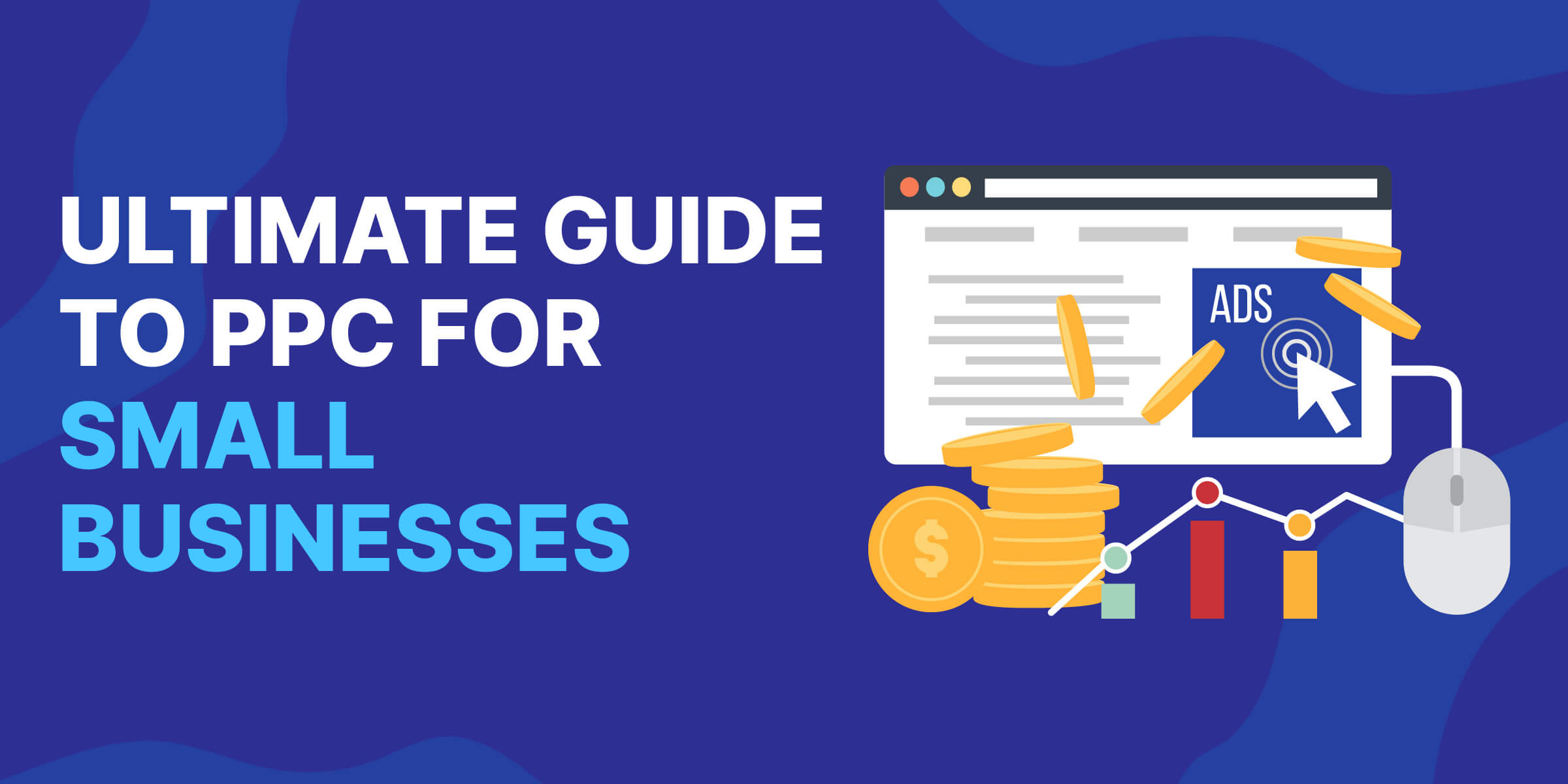If you own a small business, PPC is a great way to get your business off the ground and compete with large, well-established businesses in your industry.
And since we know small businesses and we know PPC, we know we can give you some great advice.
So here is your ultimate guide to PPC for small businesses.
Best for Growth Marketers Best for Paid Ads & CMO's
Table of Contents
- What Is PPC for Small Businesses and Why Is It Essential?
- How Much Does PPC for Small Businesses Cost?
- Benefits of PPC for Small Businesses
- Strategies and Tips for Running PPC for Small Businesses
- Common PPC Mistakes to Avoid for Small Businesses
- Best Platforms for PPC for Small Businesses
- Frequently Asked Questions
We offer this website completely free to our visitors. To help pay the bills, we’ll often (but not always) set up affiliate relationships with the top providers after selecting our favorites. However, we do our best not to let this impact our choices. There are plenty of high-paying companies we’ve turned down because we didn’t like their product.
An added benefit of our relationships is that we always try to negotiate exclusive discounts for our visitors.
What Is PPC for Small Businesses and Why Is It Essential?
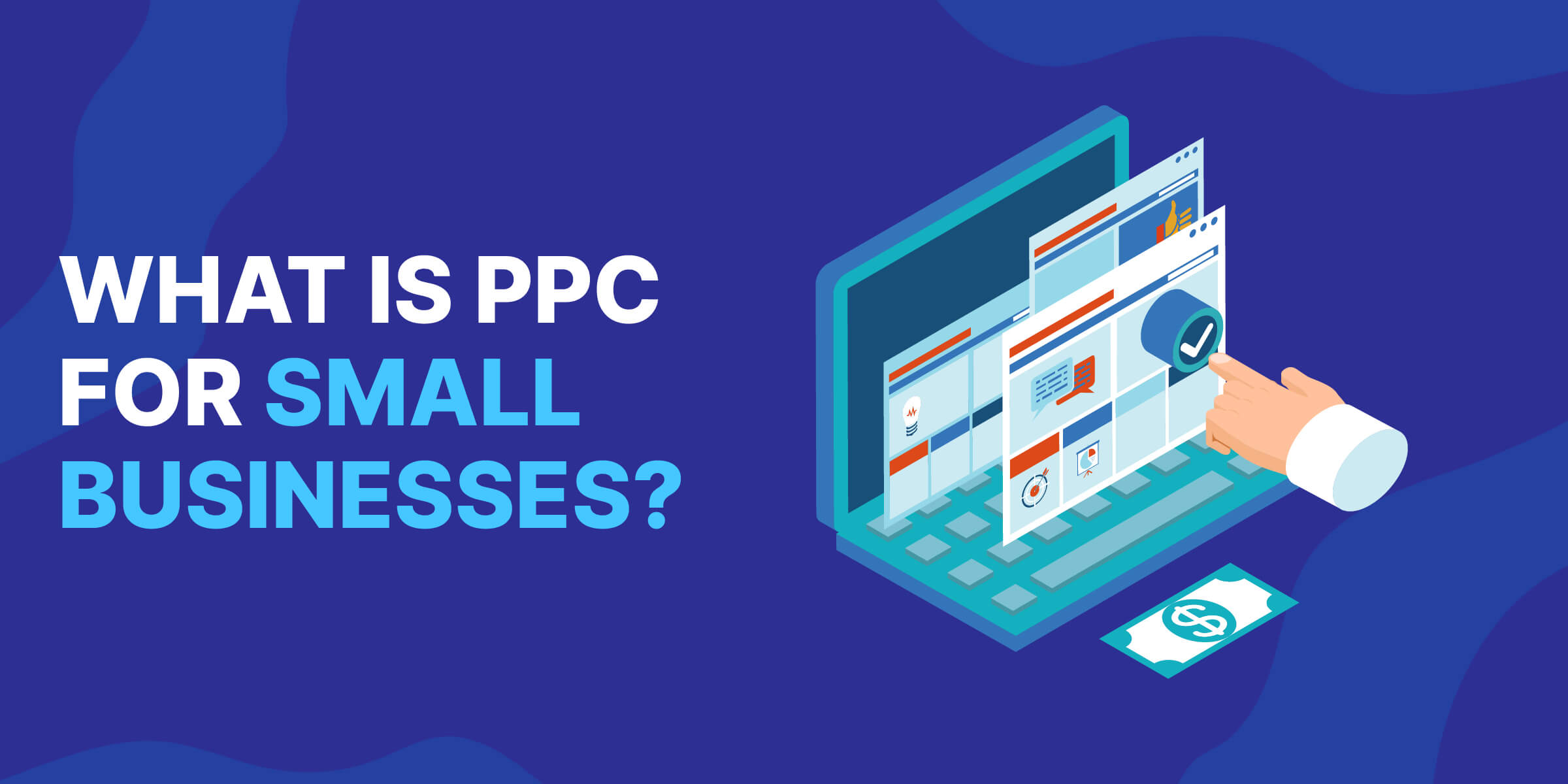

PPC (pay-per-click) is a digital marketing strategy used to drive traffic to websites and generate leads or sales. This involves paying a site or search engine (often Google) for an advertisement a fee each time someone clicks on your ad’s link.
When small businesses leverage PPC, amazing things can happen.
The reason PPC is essential for small businesses is due to its cost-effective way of driving targeted traffic and generating quick results, which are both game-changers in getting a small business’s name out there.
PPC offers precise audience targeting, ensuring ads reach potential customers actively searching for products or services relevant to the ones you offer. With limited budgets, small businesses get the opportunity to compete with larger counterparts.
Offering flexibility, data-driven insights, and the ability to tailor campaigns to unique goals, PPC is a no-brainer for small businesses looking for a way to implement efficient and competitive online advertising to drive growth.
How Much Does PPC for Small Businesses Cost?
CPCs (cost-per-clicks) for small businesses vary widely depending on the industry a small business is operating in, the geographic area the business is located in, and which platform the PPC advertisements are featured on (i.e. Google or Facebook).
According to recent PPC statistics, the average cost-per-click on Google AdWords is between $1 and $2. Small businesses spend between $1,000 and $10,000 monthly on PPC ads on average.
Benefits of PPC for Small Businesses
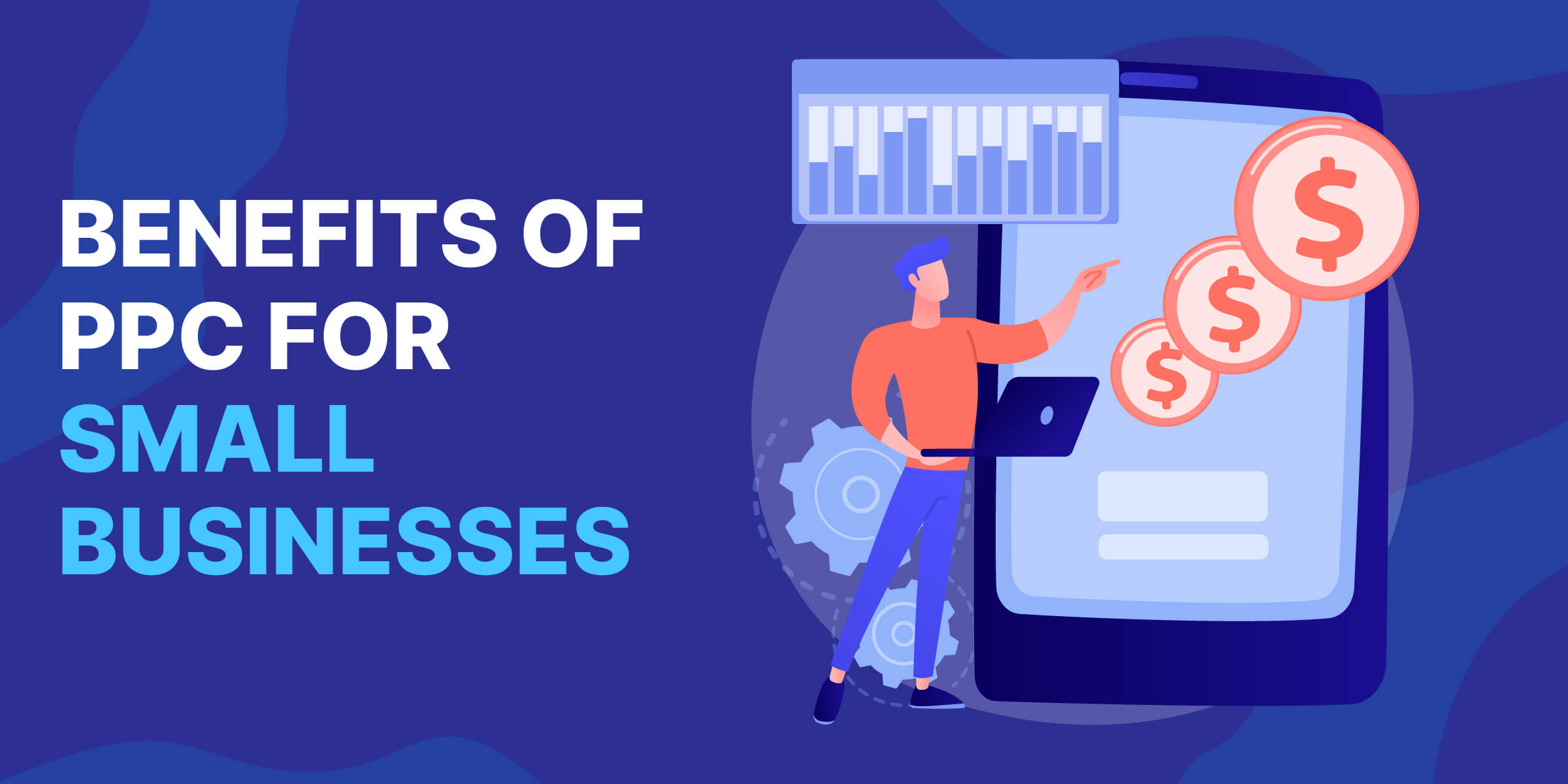

Here are a few of the many benefits of using PPC for small businesses.
Targeted Reach
Reach relevant audiences based on keywords, demographics, and locations.
Quick Results
Generate immediate visibility and traffic, ideal for new businesses seeking speedy brand recognition and growth.
Small Budget Friendly
PPC allows for small set budgets, allowing small businesses to avoid overspending while maximizing ROI.
Measurable ROI
PPC provides small businesses with detailed metrics that enable them to track clicks, conversions, and costs, providing clear insights into each campaign's effectiveness.
Flexibility
Adjust campaigns in real-time, optimizing strategies for better performance.
Brand Exposure
Even non-clicked ads enhance brand recognition, influencing customer decisions.
Geographic Targeting
Focus ads on audiences near your business. This is vital for small businesses that need to attract nearby customers.
Level Playing Field
Compete with larger competitors on a smaller budget, as ad position is influenced by ad quality and relevance, not just budget.
Testing Opportunities
A/B test ad variations to identify the most effective messages and improve future campaigns.
Remarketing
Re-engage past website visitors to increase the likelihood of conversions and reinforce brand recall for possible new customers.
Strategies and Tips for Running PPC for Small Businesses
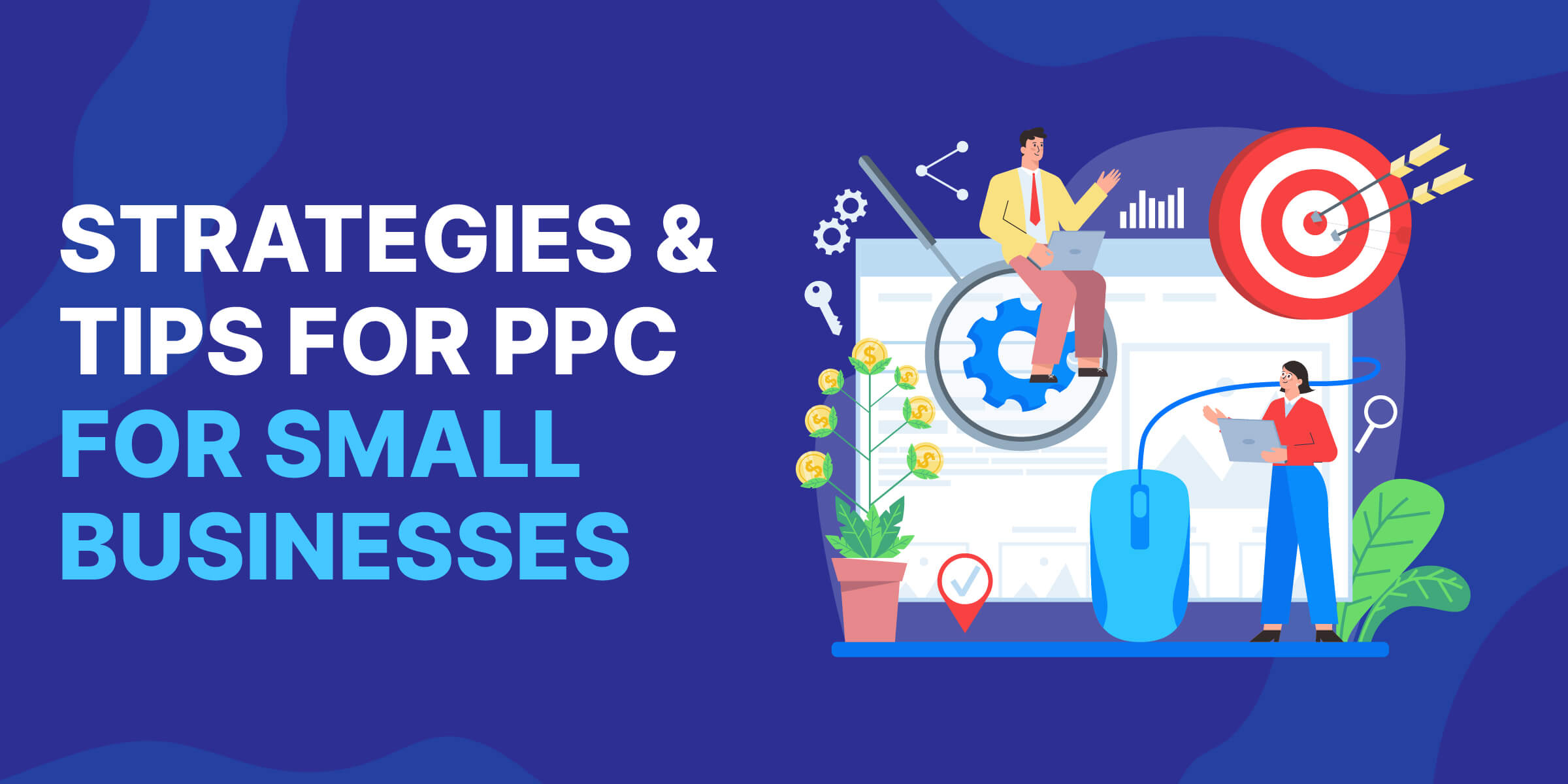

Here are some tips and strategies for running PPC campaigns as a small business.
Strategies
- Set Clear Objectives: Define specific goals like lead generation or sales to stay on track with your PPC campaign.
- Conduct Keyword Research: Thoroughly research relevant keywords to target the right audience, using cost-effective keywords to maximize ROI and keep costs down.
- Create Compelling Ad Copy: Craft attention-grabbing headlines and concise descriptions that highlight unique offerings to inspire clicks and conversions.
- Focus on Landing Page Relevance: Design user-friendly landing pages that align with ad content.
- Ensure Continuous Optimization: Regularly review campaign data, adjusting bids, keywords, and ad elements based on performance to keep campaigns effective and efficient.
Tips
- Refine Keywords: Regularly review and tweak your keyword list to make sure it stays relevant and aligned with your target audience's search.
- Negative Keywords: Use negative keywords to filter out irrelevant searches to save your budget for higher-quality clicks that are more likely to convert.
- Data Analysis: Continuously monitor campaign metrics to identify top-performing keywords, ads, and timeframes and adjust for best results.
Common PPC Mistakes to Avoid for Small Businesses
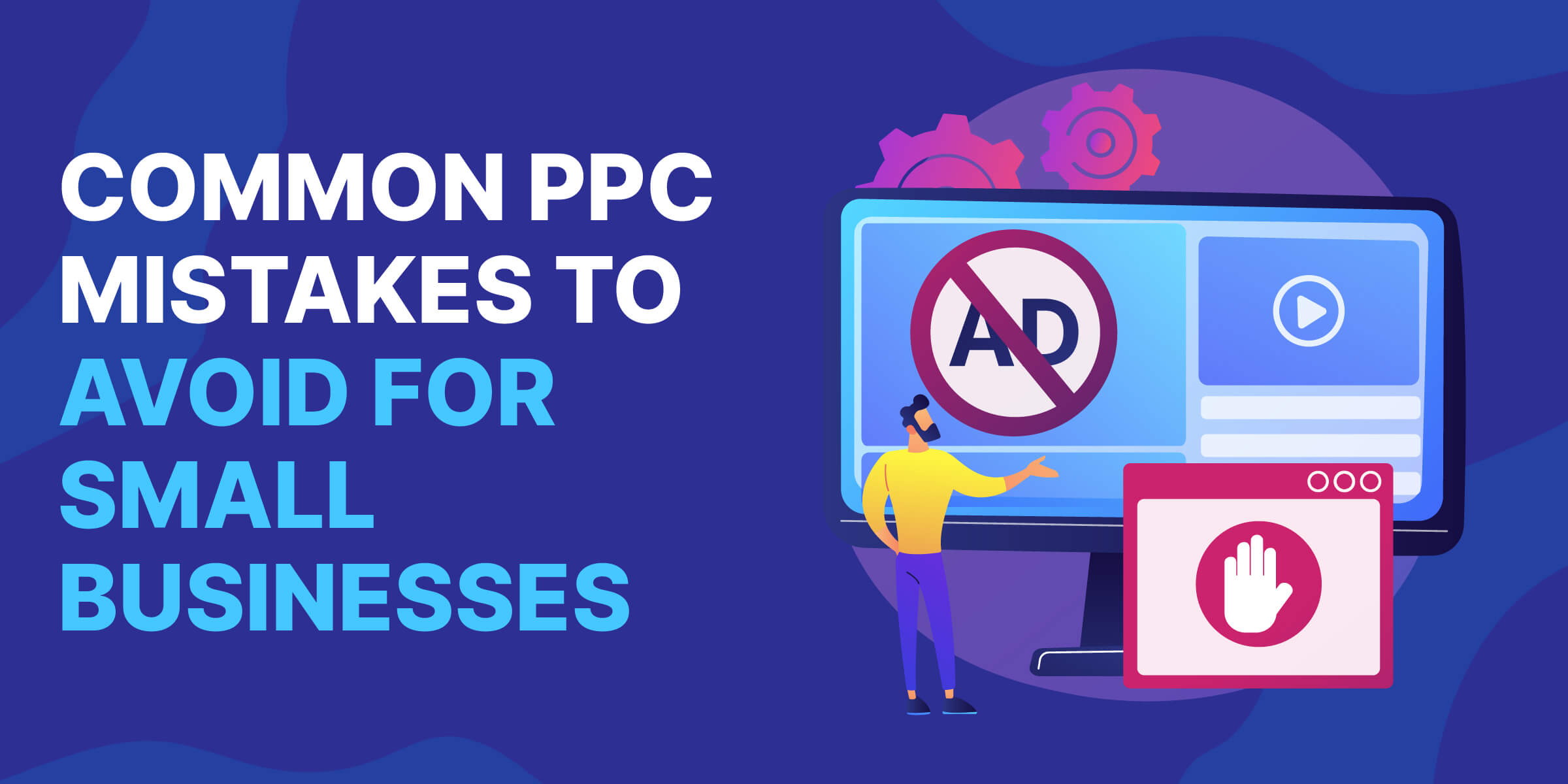

Avoid these common PPC mistakes that small businesses make.
- Neglecting Negative Keywords: Not using negative keywords can lead to ads appearing in irrelevant searches which wastes valuable budget.
- Ignoring Quality Score: Ignoring factors like ad relevance and landing page quality can result in lower ad positions and less exposure.
- Poor Ad Copy: Generic or confusing ad copy can fail to resonate with your audience and reduce ad click-through rates.
- Lack of Conversion Tracking: Not setting up conversion and click-through tracking makes it hard to measure campaign success and improve strategy.
- Set-and-Forget Approach: Not monitoring and adjusting campaigns will result in missed opportunities and wasted money.
Best Platforms for PPC for Small Businesses
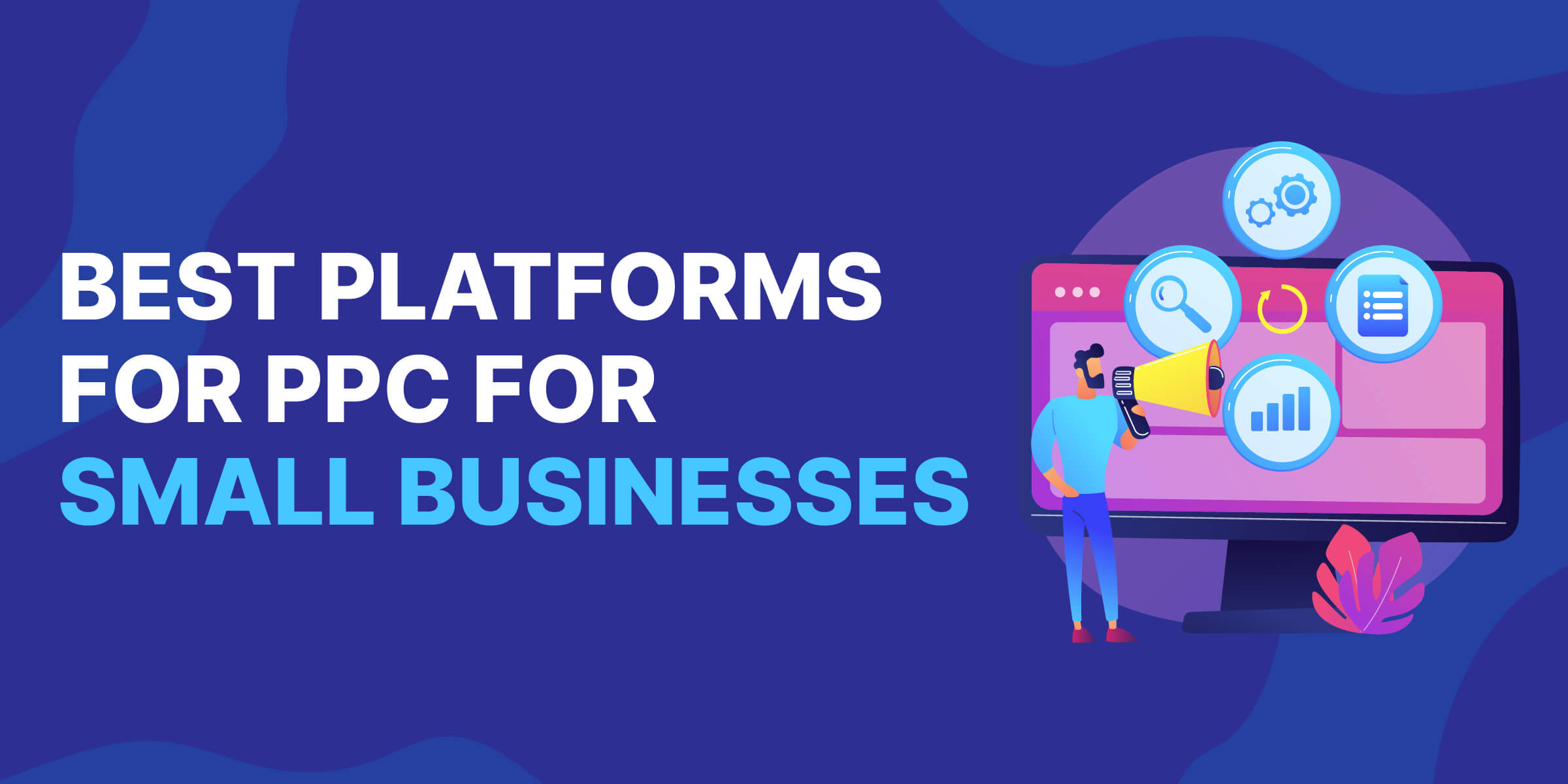

While there are a few different PPC platforms, the top for small businesses are:
- Google Ads
- Bing
While Google Ads is the largest advertising platform, Facebook ads are a great place to reach patients on a more personal level. Additionally, Bing has a lower CPC than Google. LinkedIn offers opportunities for B2B connections and recruitment.
Best for Growth Marketers Best for Paid Ads & CMO's
Frequently Asked Questions
Do small businesses need to run PPC advertising?
Yes, small businesses need to run PPC advertising if they have it in their budget. It’s a great way to maximize brand recognition on a fixed budget.
Can I run my own PPC campaign?
While you can run your own PPC campaign, we recommend hiring a PPC specialist or even outsourcing to a PPC marketing agency to maximize results.
How much should I spend on PPC as a small business?
Small businesses see the best results when they spend $1,000 to $10,000 per month on PPC.
Are Google Ads and PPC the same?
Google Ads is a platform where people can conduct PPC campaigns.














